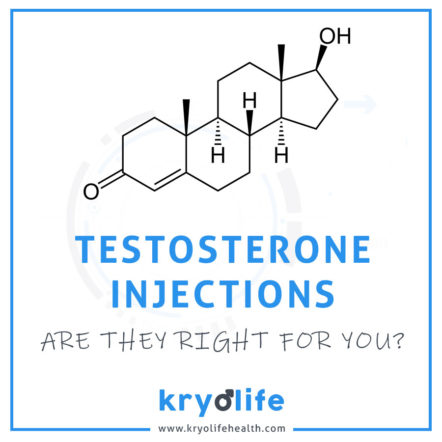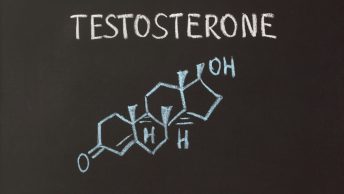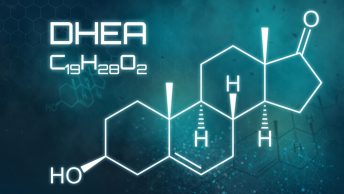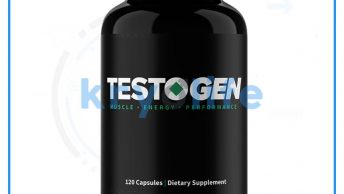Quick summary
- What are testosterone injections: Testosterone injections are a mode of testosterone replacement therapy used to treat hypogonadism, a condition where the body produces low levels of testosterone. The injections are given to men and women to restore lost biological functions and improve symptoms caused by low testosterone levels.
- Benefits of testosterone injections: Testosterone injections provide fast results and can improve muscle development, fat trimming, libido, stronger erections, and normal red blood cell production. They are also a preferred and cost-effective choice for hormonal therapy compared to other long-term options.
- Risks associated with testosterone injections: Although testosterone injections are effective, they come with potential risks such as sleep apnea, heart and liver diseases, overproduction of red blood cells, and more. It is crucial to have regular check-ups and monitor vital signs to minimize any adverse side effects.
The physiological aspects of masculinity hinges on androgen hormones and testosterones takes the major share sculpting a man!
The process starts right from the womb and goes all the way to puberty and calling it an end only when you die.
Even women synthesize a small amount of testosterone in their ovary and adrenal glands, which is used for bone development and muscle building.
Testosterone1 is an integral hormone for males because the gender description can only be completed with this compound.
However, not everybody shares the same physiological buildup, and as a result, the levels fluctuate from individual to individual.
There are various therapies, supplements2, and diets to increase the testosterone levels, but again depends on the individual physiology.
In this article, we shall explore the testosterone hormone, its deficiency, and associated impact, the benefit of testosterone injection, its cost, and other factors.
So without further ado, let’s start.
Read more: Women And Testosterone. All You Need To Know
Know what is testosterone

Testosterone is the male sex hormone that helps in the formation of male reproductive organs, development of secondary sexual characteristics, helps in functioning of various metabolic processes and lot more.
It is a steroid compound from androstane class having both keto and hydroxyl groups at 3rd and 17th position respectively.
The gender differentiation in babies occur during the second trimester of gastrulation, and it is the androgen levels that determine whether the fetus is going to be a boy or a girl.
In the human body, they are synthesized from cholesterol through several steps and finally gets converted in the liver.
They are secreted into the bloodstream by testicles upon receiving signaling from the pituitary gland.
They bind to the target cells, which hosts the androgen receptors and activates a cascade of events.
Apart from testicles, small amounts are produced by adrenal glands, fat cells, and skin cells as well.
Testosterone has performance-enhancing capabilities, and due to this reason, the illegal synthetic versions are widely used in sports and athletics.
Have you thought about using HGH – X2 to help with muscle growth?
Are you running low on testosterone?

There are many reasons for a person to be running low on testosterone. It is always crucial and effective to treat the cause rather than symptoms.
If a person is deficient on testosterone, then he will exhibit a wide range of symptoms, of which some are exclusively unique to testosterone deficiency.
The physical symptoms include weight gain and excess fat deposit, which if unattended, can lead to obesity.
Muscle loss is very visible in hypogonadism patients who will probably be anemic due to dwindling RBC production.
On the other hand, some sexual functions also get messed up when the t-levels are not within the range.
Lack of sexual vigor and low libido are the most common symptoms found in people suffering from hypogonadism.
Erectile dysfunction is also widely reported in these patients with decreased sperm count and poor semen quality.
Fatigue, low self-esteem, lack of confidence, sleepiness, and depression are some of the psychological effects of low testosterone.
How to diagnose hypogonadism?
Self-diagnosis is the preliminary analysis to assess the hypogonadism, and after a certain point, one must be able to feel an abnormality in various metabolisms.
Sometimes self-diagnosis won’t be proper, so never do self-medication based on your assumptions and the internet.
If you find yourself in matching 3 -4 symptoms from the list, consult a doctor, and get a blood test done.
Usually, the levels vary between 70 ng/dL ~ 1070 ng/dL with an average of 679 ng/dL in most men.
If the value is well below 70 ng/dL, your doctor might ask you to get a couple more confirmatory tests before fixing a testosterone injection as treatment.
An MRI of the pituitary gland will help to rectify if it’s a problem with LH or FSH secretion causing hypogonadism.
After receiving treatment, a blood test is supposed to show increased levels of RBC since testosterone can stimulate the bone marrow to produce red blood cells.
Testosterone injection: in detail
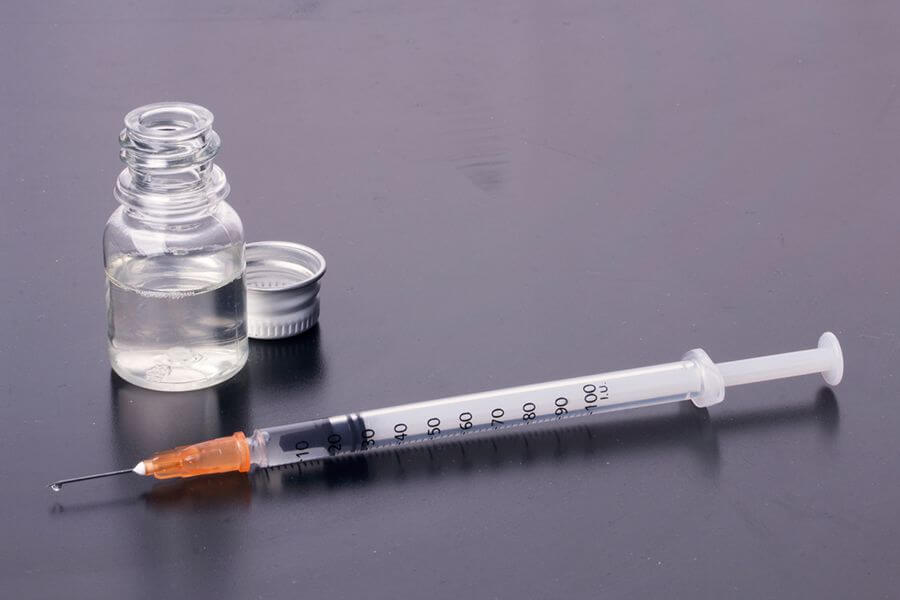
Testosterone injection3 is a treatment modality that is used to treat hypogonadism on a short-term basis with the intention of faster results.
It is often used to treat adolescent boys with delayed puberty due to lack of enough testosterone.
This injection might be given in combination with other drugs to treat the cause of hypogonadism.
The testosterone injection is also used to treat males with secondary hypogonadism caused by either genetic disorder, brain signaling disorders, pituitary disorders, etc.
Testosterone injection is given to women with breast cancer after reaching metastasis stage.
However, this injection for performance enhancement is strictly banned and not entertained due to impending side effects.
A person with prostate cancer, cardiovascular disease, kidney/liver failure should not take this injection.
Usually, permanent damage to testicles or some other disease leading to chronic hypogonadism is treated by injection.
Though testosterone injections are most effective, they are difficult to manage for a long period.
Some alternatives like, patches, gels, implants, buccal or gum patches, etc. are also used to replace injections.
Testosterone cypionate, testosterone undecanoate, testosterone pellet, and testosterone enanthate are the most common injections used for therapeutic applications.
The duration, dose, frequency, etc., are decided by the doctor based on individual parameters.
Benefits of testosterone injection

Testosterone injections are the best remedy for increasing t-hormone in cases of pituitary gland failure, damage to testicles, and other immediate situations.
By default, the t-hormone is supposed to be secreted into the bloodstream and injecting it is the fastest way to assure bioavailability.
After administering the injections, the RBC production starts via a process called erythropoiesis in the bone marrow, and within a week, new blood cells start to appear, thereby reversing anemia.
The patient also regains the lost sexual functions and probably reverse the erectile dysfunction caused by low testosterone.
Also, with more blood, all your organs will be oxygenated highly, and because of this, you will have more energy.
Testosterone injection can increase the sperm count and gives a strong sexual desire like how it is supposed to be on a healthy male.
Muscles start to develop within a month of therapy, and fat loss will become prominent, eliminating extra fat on thighs, hands, and gradually the belly fat.
How much does testosterone injections costs?
The cost varies according to the class and variety of testosterone you are using.
On average, a person who is prescribed with a testosterone therapy might have to spend anywhere $100 ~ $130 on injections per month.
A depo-testosterone will cost $30 per ml, while a generic version of testosterone cypionate will only cost anywhere between $12 ~ $26.
Also, the dose, its frequency, site of injection, etc. has to be decided by a doctor.
The cost doesn’t include the consultation charges or OP charges, which might vary according to the location.
Health risks associated with testosterone
Risks are an integral part of any therapy, and so does it is very true for testosterone therapy as well.
These injections are mean to stabilize the vitals and prevent ill-effects caused due to low testosterone.
In no sense could a testosterone injection replace the naturally occurring hormone or its biological potential.
People have reported sleep apnea after starting the therapy, and apart from which one might also get hot flashes at times.
Cardiovascular effects of testosterone injections have also been reported in some cases.
Liver problems, blood clot, high RBC count, etc., are some of the possible risks involved in this therapy.
Final verdict
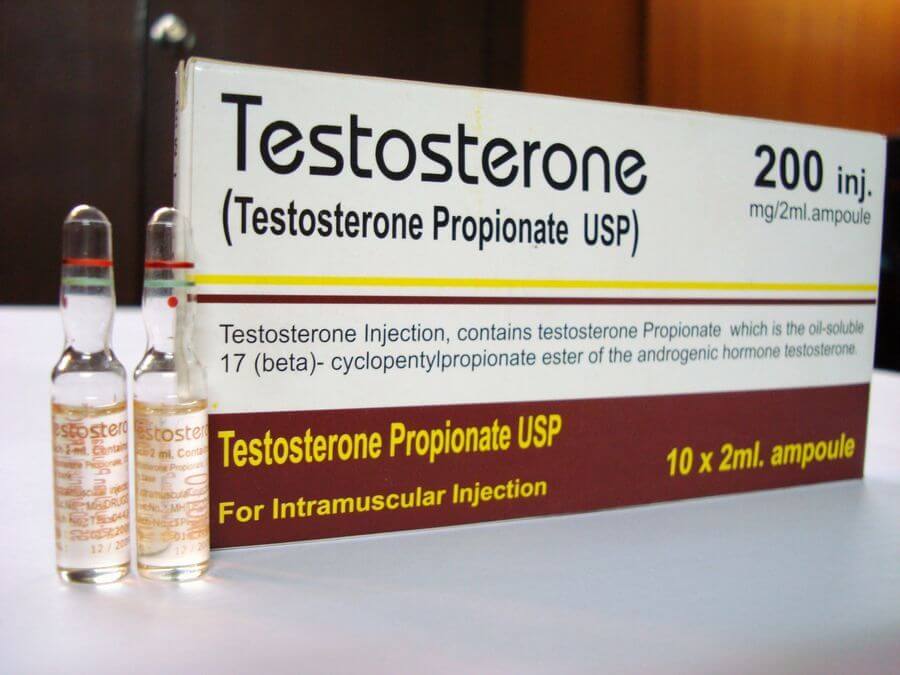
Testosterone injections are one of the most effective modes of ‘testosterone replacement therapy’ due to its faster action.
It has to be done by a professional such that the viability of injection on a long-term basis is a downside.
Nowadays, self-administrable injections are there on the market, giving hope for testosterone injection-based therapy for hypogonadism.
There are some potential risks involved in treating low-t with a testosterone injection like sleep apnea, heart/liver diseases, overproduction of RBC’s, etc.
But keeping a constant check of vitals after therapy can keep the side effects under control.
Testosterone injection can restore a lot of lost biological functions like muscle development, fat trimming, libido, stronger erections, normal RBC production, etc.
Injectable versions are much cheaper than other long-term choices out there, making a testosterone injection most preferred choice for hormonal therapy.
References
- Mauras, Nelly, et al. “Testosterone deficiency in young men: marked alterations in whole body protein kinetics, strength, and adiposity.” The Journal of Clinical Endocrinology & Metabolism 83.6 (1998): 1886-1892. https://academic.oup.com/jcem/article-abstract/83/6/1886/2865200
- Gruenewald, David A., and Alvin M. Matsumoto. “Testosterone supplementation therapy for older men: potential benefits and risks.” Journal of the American Geriatrics Society 51.1 (2003): 101-115. https://onlinelibrary.wiley.com/doi/abs/10.1034/j.1601-5215.2002.51018.x
- BARRACLOUGH, CHARLES A. “Production of anovulatory, sterile rats by single injections of testosterone propionate.” Endocrinology 68.1 (1961): 62-67. https://academic.oup.com/endo/article-abstract/68/1/62/2702432

